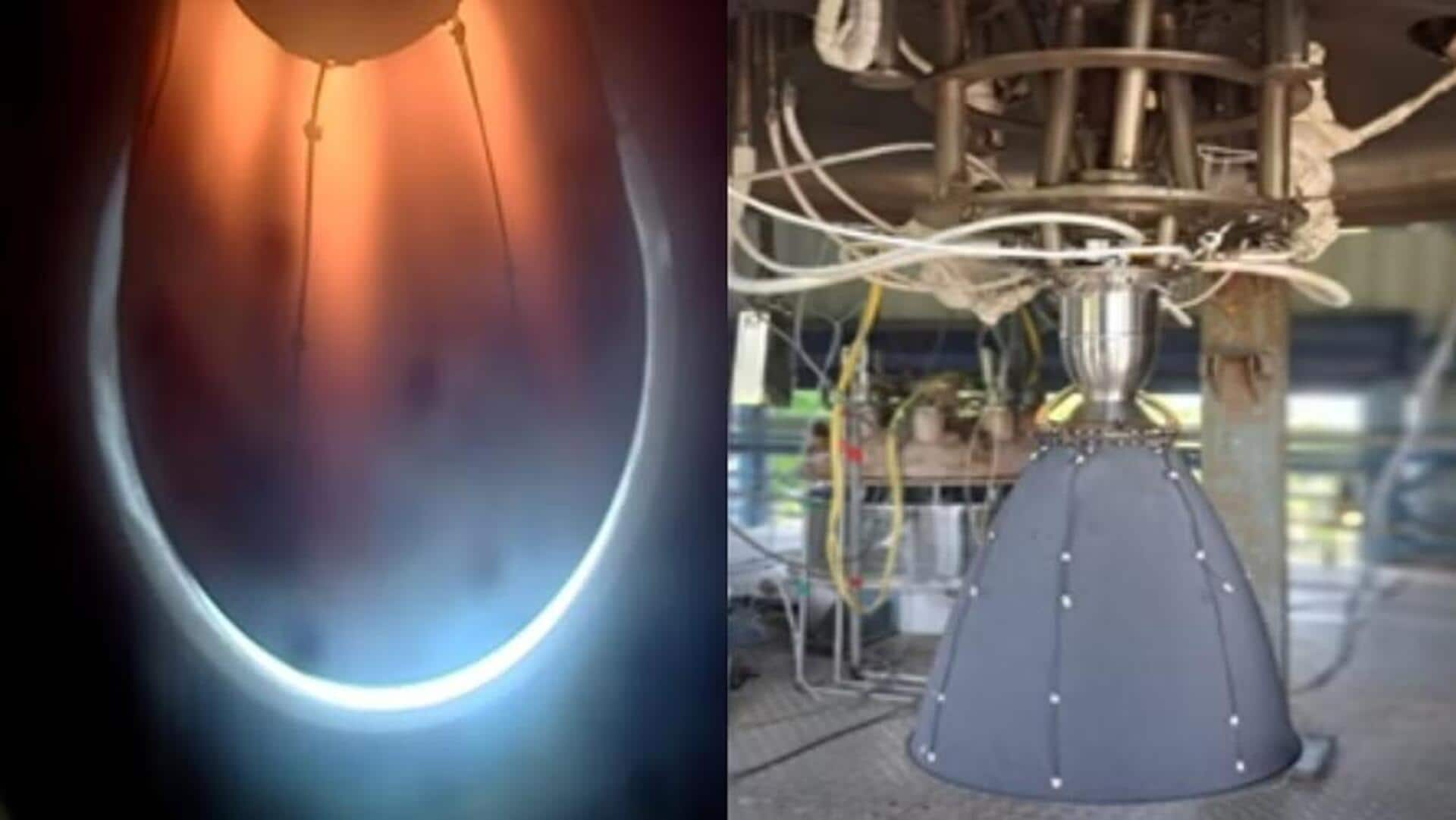
ISRO successfully tests groundbreaking lightweight nozzle for rocket engines
What's the story
The Indian Space Research Organisation (ISRO) has successfully tested a lightweight Carbon-Carbon (C-C) nozzle, marking a significant advancement in rocket engine technology. This development was led by the Vikram Sarabhai Space Centre (VSSC) in Thiruvananthapuram. According to ISRO, this C-C nozzle is expected to enhance key aspects of rocket engines such as thrust levels, thrust-to-weight ratios, and specific impulse, thereby increasing the payload capacity of launch vehicles.
Material usage
Innovative materials used in nozzle construction
The VSSC team utilized advanced materials such as C-C composites to construct a nozzle divergent with superior properties. The manufacturing process involved carbonization of green composites, chemical vapor infiltration, as well as high-temperature treatment. The final product is a nozzle that features low density, excellent stiffness, and high specific strength. Remarkably, it retains its mechanical properties even under extreme temperatures.
Coating innovation
Unique anti-oxidation coating enhances nozzle performance
The C-C nozzle is distinguished by its unique anti-oxidation coating of silicon carbide. This coating expands the nozzle's operational range in oxidizing environments, and reduces thermally induced stresses. It also improves corrosion resistance, allowing for extended operational temperature limits in harsh environments. This feature significantly broadens the potential applications of the C-C nozzle in various space missions.
PSLV upgrade
Potential impact on ISRO's primary launcher
The new C-C nozzle holds significant implications for ISRO's primary launcher, the Polar Satellite Launch Vehicle (PSLV). Currently, the PSLV's fourth stage uses twin engines with nozzles that are made from columbium alloy. However, substituting these metallic divergent nozzles with C-C ones, could result in a mass reduction of roughly 67%. This change could potentially increase the PSLV's payload capability by 15kg.
Test success
Successful testing marks significant achievement for ISRO
The C-C nozzle divergent was successfully tested on March 19, 2024, marking a significant achievement for ISRO. A 60-second hot test was done at the High-Altitude Test (HAT) facility in ISRO Propulsion Complex (IPRC), Mahendragiri in Tamil Nadu. This test verified the system's hardware integrity and performance. Subsequent tests, including a 200-second hot test on April 2, confirmed the nozzle's capabilities, reaching temperatures of 1216K as predicted.